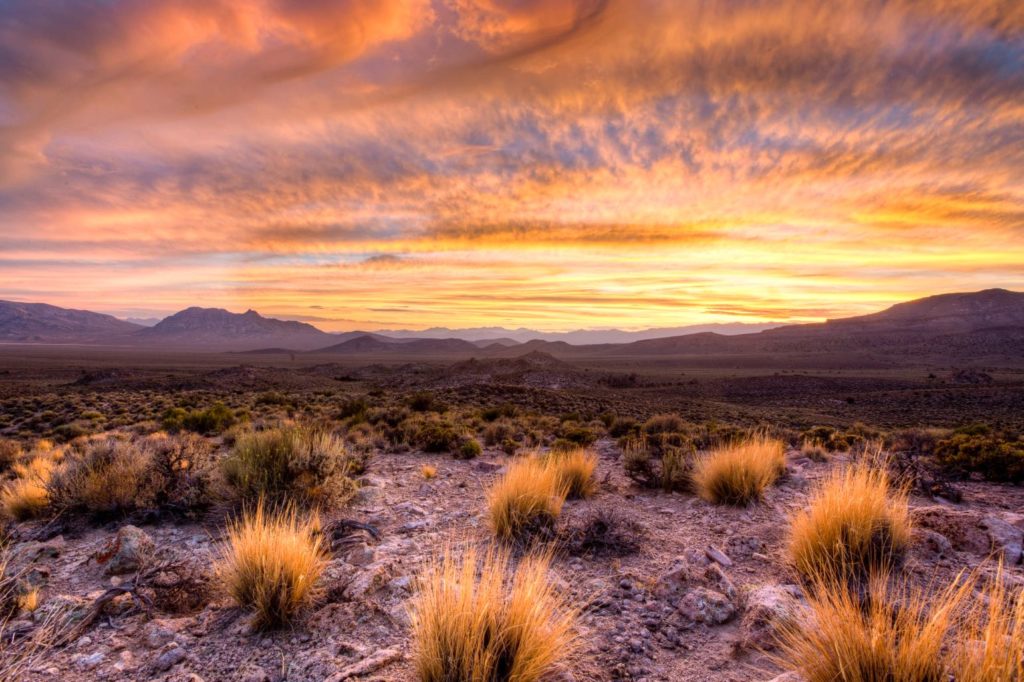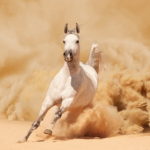
The eighth sūra from the Makkan period is the sūrat al-A‘lā which runs: Glorify the name of your Lord, the Most High, who creates, then makes complete, and who measures, then guides; And who brings forth herbage, then makes it dried up, dust-coloured. We will make you recite so you shall not forget, except what Allah pleases, surely He knows the manifest, and what is hidden.[1]
THIS ENTIRE SŪRA is in rhyming saj‘[2] and replete with claims that cannot be proved. The sūra in addition contains verses which imply a plurality of gods, not just one god. The first verse runs: Glorify the name of your Lord, the Most High. As is well known, the word a‘lā (‘highest’, ‘most high’) is a superlative: we say ‘high’, then ‘higher’, then ‘highest’, which is above them all, and ‘low’, ‘lower’ and ‘lowest’. If His Lord is ‘the highest’, there must be high Lords, but that He is ‘higher’ than them. He cannot be ‘higher’ than nothing. As for creates, then makes complete, this is only a claim that has no proof.
The Qur’ān itself is fond of asking for ‘proof’ from others. Quoting the Jews it asks: And they say: None shall enter the garden (or paradise) except he who is a Jew or a Christian. These are their vain desires. Say: Bring your proof if you are truthful [3] and citing the words of the Makkan Arabs: Or, have they taken gods besides Him? Say: Bring your proof.[4] Then Allah says about Himself: Who originates the creation, then reproduces it and who gives you sustenance from the heaven and the earth. Is there a god beside Allah? Say: Bring your proof .[5] He then says concerning the peoples at the Day of Resurrection: And We shall take out from every nation a witness and We shall say: Bring your proof.[6]
The sūra contains verses which imply a plurality of gods
This God who is fond of asking for proof from others ought to have provided us with proof that He is the one who makes complete, especially since He says in sūrat al-Mu’minūn: Blessed be Allah, the best of the creators.[7] As long as he is the best of the creators there must be other creators for Him to be the best of. How then do we know that He created us whereas the other gods did not create us, especially since the human body clearly lacks the geometric perfection that we expect from a god who is the best of the creators, or, as the English say the ‘master builder’. The human body is a machine that expends most of the energy that it gets from food in the form of heat that goes to waste. If Allah was the best of the creators, he would be expected to create a more perfect machine.
Who measures, then guides
Since He has set down for each person his destiny, and has guided those who wish to be guided, why did He send messengers and prophets?
Who brings forth herbage, then makes it dried up, dust-coloured.
Herbage is what camels and livestock graze on, but the word is used here to mean the grasses that grow in that spot. When these grasses are fully grown and the grains or seeds they carry mature, their role in maintaining the genus is complete, and they die off just as salmon perish when they give birth to their young who will take their place. When plants complete their cycle, they become yellow because they do not need to produce food after they have completed their task, and they therefore stop producing the chlorophyll which lends the plant a green colour. So the leaves yellow, and then die.
But the author of the Qur’ān here tells us that He made these plants become dried up, dust-coloured. The word ghuthā here means ‘dry’, so we say: ‘the wadi became ghuthā’ when it dries up, or ‘the water dried up’ when its surface is covered in foam from the rush of water. So how did the author of the Qur’ān make these grasses dry up? Moreover, the word aḥwā (dust-coloured) is derived from al-ḥawā which means the browning on a lip, much like al-lumā means the same. Arabs named women with browning on their lip ḥawā or lumā. This was a quality of beauty in a woman. So why did the author of the Qur’ān call the dried up grasses dust-coloured? The commentators were confused in this matter, and said that it was possible for aḥwā to denote a type of herbage, and at the same time be an adjective for dust-coloured, meaning that it became so after its green state, that is, the grasses turned from green to black
So He turned it black from ageing and being burnt (al-Qurṭubī).
Have any of you seen the plant turn black? Then He goes on to say,
We will make you recite so you shall not forget, except what Allah pleases
God will make Muḥammad recite the Qur’ān – even though it was Jibril who actually asked him to read – and He asks him not to forget what he will make him recite except what Allah pleases that he should forget. Well, we know that Muhammad was a human being like us; human beings forget no matter how strong their memory, and Muḥammad forgot and overlooked the prayer many times. But Allah himself wanted him to forget, how could He then say to him We will make you recite so you shall not forget? If Allah asked him not to forget any of the Qur’ān, why was the Qur’ān not revealed to him written on leaves, just as the Ten Commandments were revealed to Moses inscribed on stone, thus ensuring that the Qur’ān would not be distorted or forgotten? We understand from this verse that Allah wanted Muḥammad to forget some verses, so therefore the Qur’ān cannot be a properly memorized remembrance.
If Allah asked him not to forget any of the Qur’ān, why was the Qur’ān not revealed to him written on leaves, just as the Ten Commandments were revealed to Moses inscribed on stone?
Sūrat al-A‘lā then continues:
Surely He knows the manifest, and what is hidden. And We will make your way smooth to a state of ease. Therefore do remind, surely reminding does profit. He who fears will mind, but the most hapless will flout it, who shall enter the greatest fire; Then therein he shall neither live nor die.
Again He claims that He knows the manifest, and what is hidden. We all know what is manifest because it is sensed, but the fact that He knows what is secret is a claim that lacks the type of proof that the Lord of the Qur’ān demands of us.
Therefore do remind, surely reminding does profit.
This verse appears here only to round off the saj‘ rhyme in the sūra, and does not in itself make any sense. If reminding does profit there is no need to be reminded of this. We always remember the person who failed to benefit from past words or deeds, or who did not fulfil his promise.
He who fears will mind, but the most hapless will flout it,
Again, the demands of the saj‘ rhyme forced the author of the Qur’ān to use the superlatives in the wrong place, so he says: but the most hapless will flout it – meaning that that the merely hapless one will not flout the reminder, only the most hapless will flout it. And this most hapless one will enter the greatest fire. This implies that there is a fire, a greater fire, and then the greatest fire, bigger than all the others.

Suggested Reading
But we know from the Qur’ān that Hell is a single entity and has walls around it – the curtains of which shall encompass them about.[8] As for this most hapless person who shall enter the greatest fire, then therein he shall neither live nor die – we understand from this that he will be in some sort of coma, neither alive nor dead. But a person in a coma state does not feel pain. What is the use of torment in hell if the tortured person is in a coma and does not feel pain? Then the sūra continues:
He indeed shall be successful who purifies himself, And magnifies the name of his Lord and prays. Nay! you prefer the life of this world, while the Hereafter is better and more lasting. Most surely this is in the earlier scriptures, the scriptures of Abraham and Moses.
If we remember that this sūra is the eighth sūra ‘revealed’ in Makka, where 86 sūras were brought down, we know that it appeared at the beginning of the Message, when zakāh had yet to be imposed on Muslims, which did not occur until the last two years of Muḥammad’s life at Madina. We may surmise then that the author of the Qur’ān was absent-minded here, as he had been before, and talked about zakāh and prayer long before they had been imposed.
[1] Qur’ān LXXXVII (al-A‘lā), 1-7.
[2] See Glossary.
[3] Qur’ān II (al-Baqara), 111.
[4] Qur’ān XXI (al-Anbiyā’), 24.
[5] Qur’ān XXVII (al-Naml), 64,
[6] Qur’ān XXVIII (al-Qaṣaṣ), 75.
[7] Qur’ān XXIII (al-Mu’minūn), 14.
[8] Qur’ān XVIII (al-Kahf), 29.
